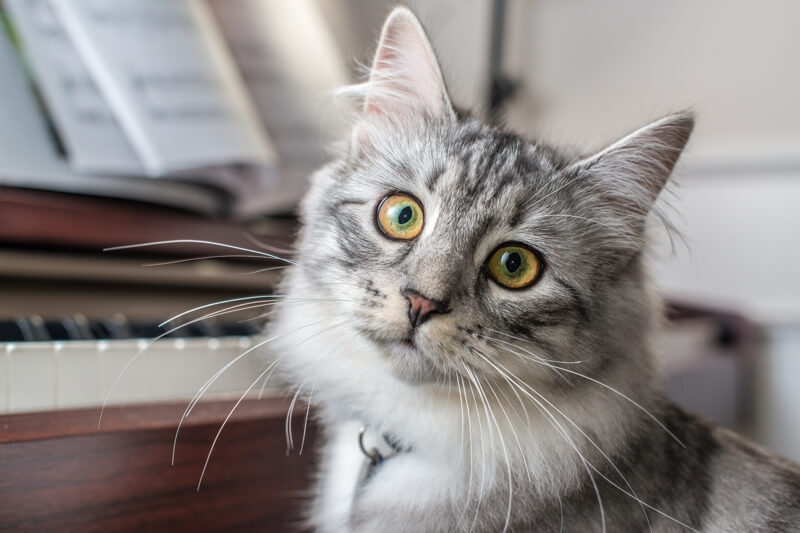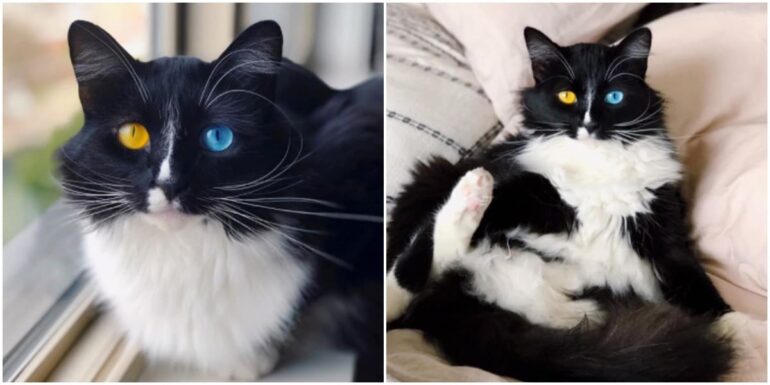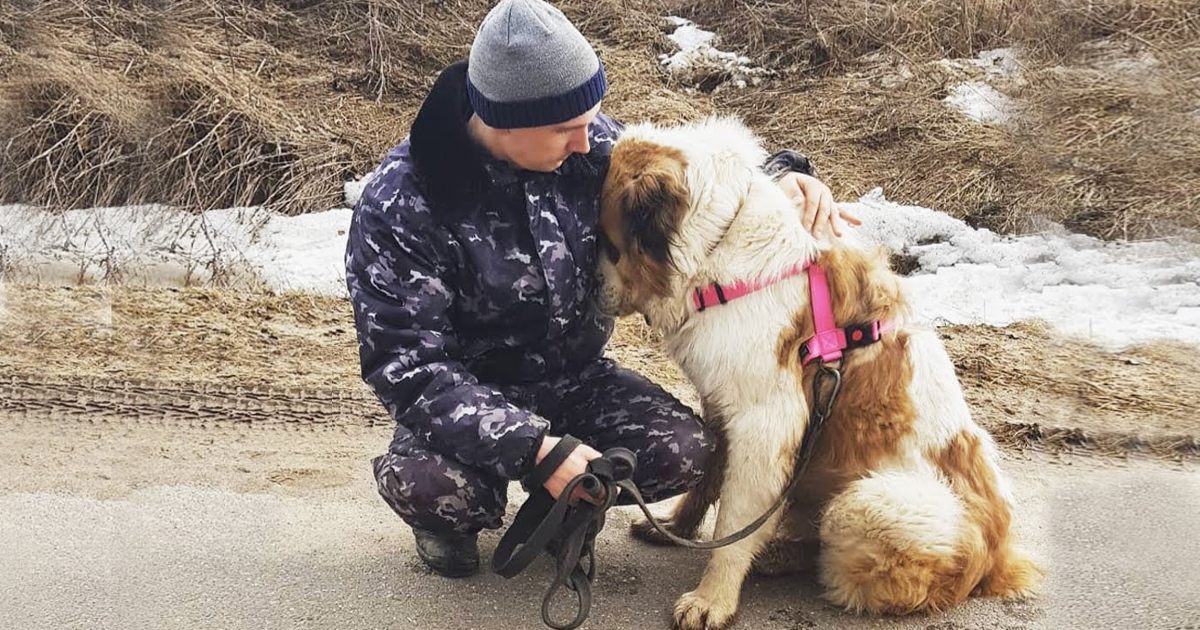
Are you familiar with the Siberian cat? If not, it’s time to get to know these marvelous felines! The Russian phrase “Ya tebya lyublyu,” which means “I love you,” will come in handy when you meet your first Siberian cat. These cats possess strength, intelligence, and a gentle nature that makes them a great fit for any household, even those with dogs! Siberian cats, also referred to as Siberian Forest cats or Moscow Longhairs, are semi-longhair breeds that typically weigh 15-20 pounds for males and slightly less for females. Their glossy coats and curious round eyes make them an attractive choice. As a landrace breed, they have adapted over time to survive the harsh Russian winters, which explains their thick fur. These cats have lovely personalities and require minimal upkeep, making them the ultimate addition to any home with children and other pets. Don’t miss out on the opportunity to meet one of these amazing cats!

The Siberian cat breed can be traced back to the dense forests of Siberia, where they likely sought refuge in farms, shops, and monasteries to escape harsh winters. These beautiful felines were highly valued for their hunting skills in keeping rodents at bay, and many believe they are the ancestors of all modern longhair cats. Although their early stages are not well documented, it is believed that they were domesticated over a thousand years ago. In the late 19th century, Harrison Weir mentioned Siberian cats in his book Our Cats and All About Them as participants in early cat shows in the UK. These cats were likely brought to the UK by Russian immigrants, but the exact date remains unknown. Surprisingly, Siberian cats were not introduced to the US until 1990 when an enthusiast from Louisiana named Elizabeth Terrell negotiated a deal to bring a few over by exchanging four of her Himalayans. Despite growing popularity, Siberian cats remain relatively rare in the US.

The Siberian cat breed possesses a range of distinct characteristics that set them apart from other felines. These cats have a sturdy yet agile physique, with powerful hind legs that enable them to leap and play like seasoned athletes. Their round faces, large paws, and round eyes in stunning shades of green or gold convey a friendly demeanor. However, their most distinguishing feature is their thick, three-layered fur coat, which includes coarse and straight guard hairs, wavy awn hairs, and a wooly undercoat. Siberians are available in various colors and patterns, such as solid, tortoiseshell, and color point.
Siberian cats are known for their energy, intelligence, and problem-solving abilities. They enjoy climbing, jumping, and engaging with puzzle toys while learning new tricks. Despite being devoted, these cats are not clingy and can wait patiently for cuddles. Compared to most cats, they are less disturbed by noises or unfamiliar people and can reside peacefully with children, dogs, and other household residents if introduced correctly. As a result, if you own a Siberian cat, anticipate having a delightful and affectionate companion by your side at all times.

Looking After Your Siberian Cat
If you’re thinking of getting a Siberian cat, you might be worried about the grooming that these fluffy felines require. However, you’ll be pleased to know that despite having a three-layered coat, Siberians are fairly low maintenance when it comes to grooming. A little brushing once or twice a week will help prevent matting and tangling in their glossy fur. Keep in mind that these cats shed heavily at the end of winter and have lighter shedding in the summer, so you might need to brush them more frequently during these times.
It’s also important to keep your cat’s claws trimmed on a weekly basis and to check their ears for any signs of redness or unpleasant smells. If you notice any buildup, use a damp cotton ball to clean it gently and consult with your vet if there are any indications of an ear infection. Additionally, it’s a good idea to brush your cat’s teeth a few times a week to maintain their dental health.
Hypoallergenic Siberians?
While some people believe that Siberian cats are hypoallergenic and won’t cause allergic reactions, this isn’t entirely true. These cats do produce less of the protein (Fel d1) that can trigger allergies, but even small amounts can still cause problems. They also produce dander, which can be irritating to allergy sufferers.
Special Care Tips for Siberians
Siberian cats aren’t particularly needy, but they do enjoy having company. If you’re adopting a Siberian, why not consider getting two so that they can keep each other company? These cats are known for their playful antics, but it’s important to protect them from potential dangers. Keep fragile objects out of reach and invest in a tall cat tree to keep them entertained.

The natural breeding of Siberian cats makes them generally healthy, but there is a possibility that they may suffer from hypertrophic cardiomyopathy (HCM), a common heart disease that thickens the heart muscles and can lead to heart failure. To ensure the health of your Siberian cat, it is recommended to have them screened by a veterinarian for HCM. These felines reach reproductive maturity early and can have larger litters, which is why it is advisable to have them spayed or neutered as soon as possible to prevent any unwanted litters.
Apart from their health concerns, Siberian cats are known for their affectionate personalities and love for adventure. Interestingly, they are also recognized as the national cat of Russia, and their shedding is triggered by changes in daylight hours rather than temperature. In the movie Nine Lives, Kevin Spacey played a character whose mind was trapped inside his daughter’s Siberian cat.
When it comes to parenting, these cats take their role seriously. The mama cats usually mate with only one male, and the dads actively participate in caring for their kittens. Moreover, Siberian cats have water-repellent coats and love water activities. Hence, it is not unusual if they attempt to join you in the shower!

Naming your Siberian cat can be a challenging task, given their unique personalities. However, you can make the process simpler by considering names based on famous lakes and rivers in Siberia like Lena, Amur, Obie, Yenisei, or Baikal. Another option could be to name them after Elizabeth Terrel, who brought Siberian cats to the United States, or Naina, one of her initial Siberian cats. Alternatively, you could go for names inspired by intrepid explorers that share the spirit of Siberia like Magellan, Lewis, Boone, Leif, or Yuri. Regardless of the name you choose, it’s important to ensure the complete protection of your feline companion. So why not consider getting an ASPCA Pet Health Insurance quote today?

